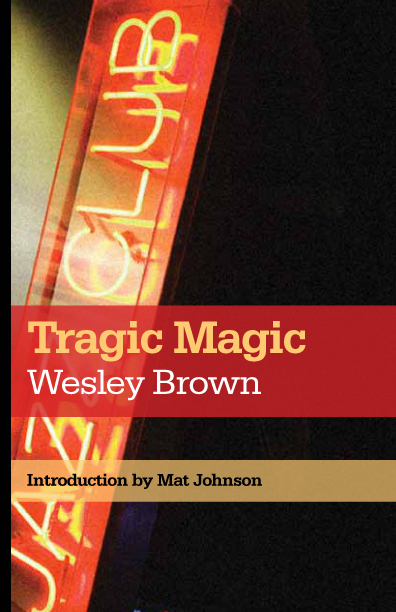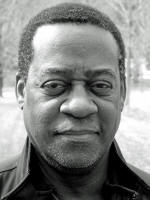
“ Tragic Magic is a tremendous affirmation.”
– James Baldwin
“ . . .wonderfully wry.”
– Donald Barthelme
“ An important discovery.”
– Ishmael Reed
Utterly Rare Brilliance
by Mat Johnson
“As an intern in the reed section of sound I have been buckling to win the critic’s poll as a talent deserving wider recognition.”
So begins Tragic Magic, a novel also desiring wider recognition, and even more deserving of it, obvious immediately from prose that seems like it would be equally at home in musical notes. This prose, this melodic, symphonic, stereophonic, hi-fi, prose:
“Scatology is a branch of science dealing its the diagnosis of dung and other excremental matters of state. Talking shit is a renegade form of scatology developed by people who were fed up with do-do dialogues and created a kind of vocal doodling that suggested other possibilities within the human voice beyond the same old shit.”
What the hell are you supposed to do with a paragraph like that? It’s just sick, and by sick I mean that it is so robustly healthy that it exhausts the meaning of that word completely. It’s so nice, it makes me have to figure this shit out for myself. The pairing of the scientific term “scatology” with the black colloquialism “talking shit” wins a prize right there. But then Brown goes on to use that as an argument for innovation by extending the fecal metaphor all the way to “the same old shit.” And the whole thing ends up being as eloquent as it is crass, and that contrast just adds to the tension. Brilliant. Utterly rare brilliance.
So how the hell had I never heard of this book before?
Who do I sue? What conspiracy created this state of affairs. Because let me admit this first right here: until recently, I hadn’t read Tragic Magic, and I will add that to a list of personal shames already fairly lengthy.
The question I always have, upon discovering a literary gem, is why? Why was I not thrust this book from the get-go when clearly this is what my life has been missing? Is it because it’s not a perfect book? No book is a perfect book. Invisible Man was not a perfect book. Huckleberry Finn was not a perfect book. Show me a list of 100 of the greatest books of the English language and I’ll show you 100 books with structural, narrative and character flaws.
Writing isn’t a game of perfection. It’s one of inspiration, innovation, and elevation—all on lurid display in Tragic Magic. There is a voice here that defines itself as unique and vibrant and informed from the moment it clears its throat. There is a story that pulls you in and around as it weaves through its day, a walk through the recent history of black masculinity, as well as the life of the main character, Melvin “Mouth” Ellington. There is enjoyment here, obvious in Wesley Brown skilled telling—and his love of story and the written word.
One of the first things I figured out as a writer was that the best-written books were often not the most heralded ones. The most talented authors, the greatest creative accomplishments, are not recognized by the universe in direct correlation to their worth. This realization happens to readers in the back of library stacks, or in the extra-dusty section of the used bookstore, or when an indie bookseller puts a treasure in your hand with damn near a wink. It happens when you open up a book you’ve never heard of and find magic inside and fireworks popping off the page.
Most readers never go off the prescribed path, so how would they know this joy? Read Tragic Magic, and you will know what I’m talking about. And congratulations! Only the hardcore readers get this far.
Mat Johnson
Houston, Texas


